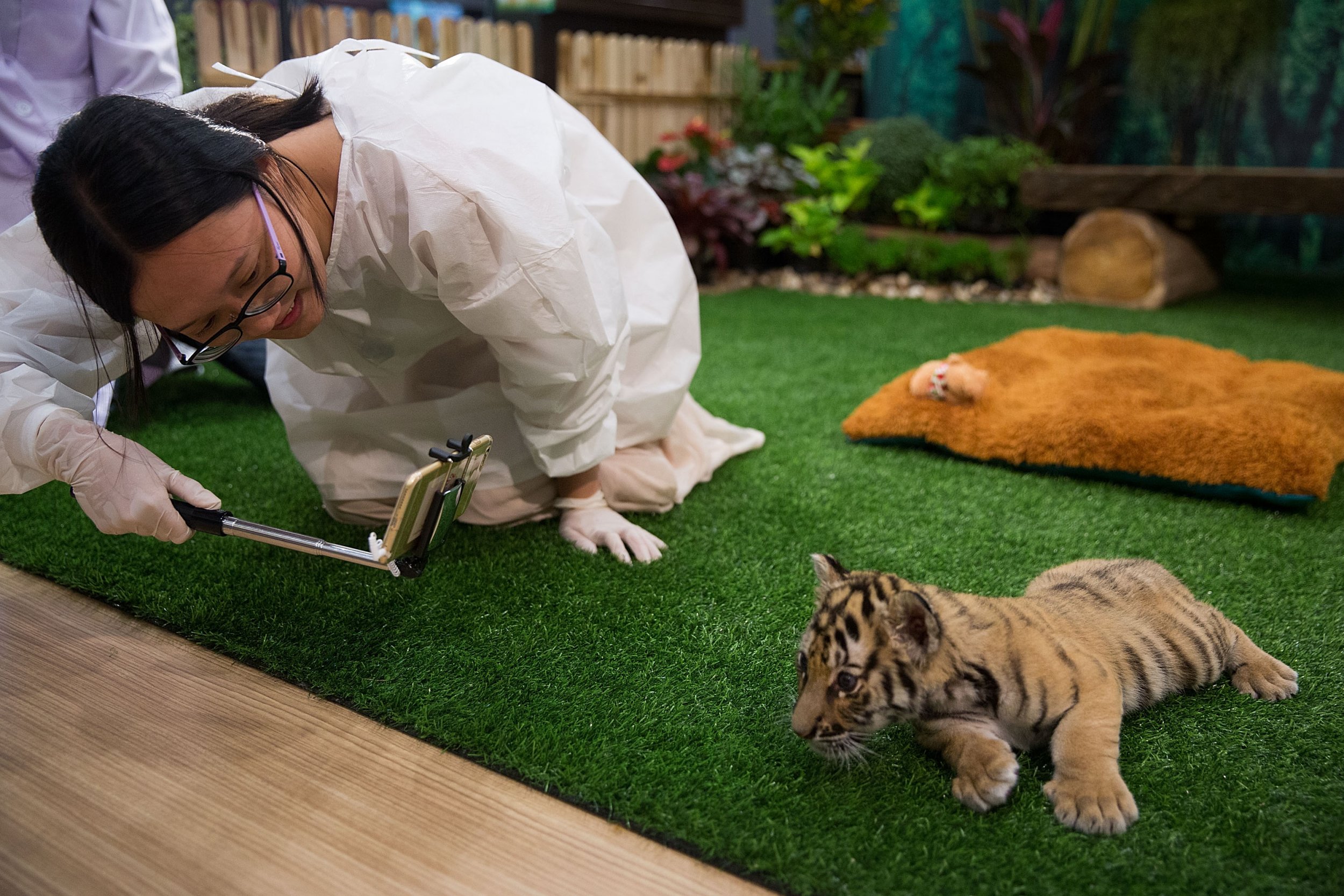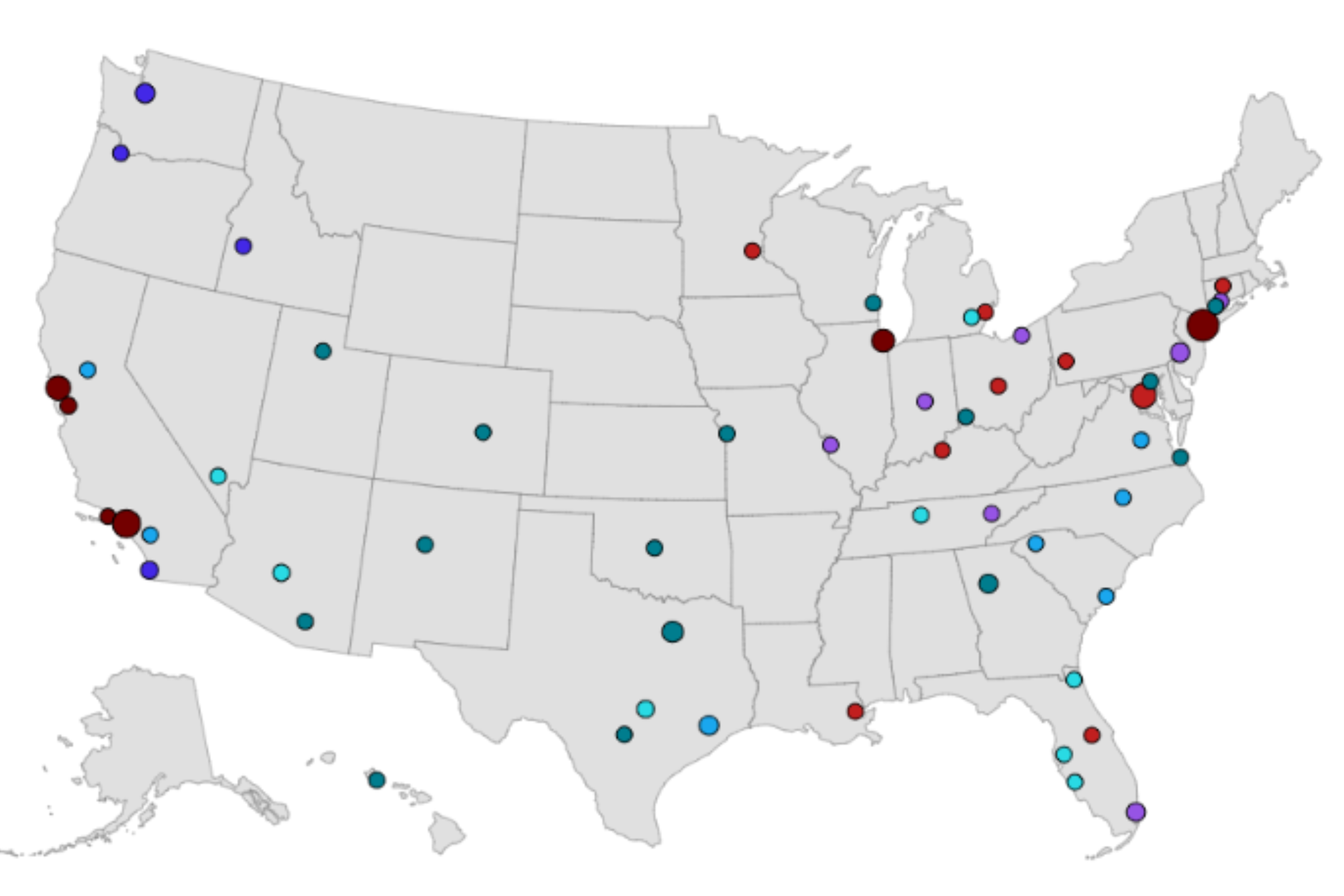
After a request from PETA, the dating app Tinder this week encouraged users to take down their tiger selfies.
In a blog post, the company said, "Posing next to a king of the jungle doesn't make you one. … It's time for the tiger selfies to go."
This is the latest move by a growing number of household-name companies to tackle the ever-growing problem of dubious "wildlife" attractions. Well meaning tourists are often duped by such places, unaware of the cruelty that animals endure in captivity.
If you can hug, ride, or take a selfie with a tiger, elephant, dolphin, or other wild animal, the likelihood is that the animal has been abused.
Research conducted last year by the University of Oxford's Wildlife Conservation Research Unit (WildCRU) found that three out of four wildlife tourist attractions involve some form of animal abuse or conservation concerns, and up to 550,000 wild animals are suffering in these venues.
They estimate that approximately 110 million people visit cruel wildlife tourist attractions each year, oblivious to the animal abuse involved.
Tiger, lion, and bear cubs who are forced to pose for photos are prematurely removed from their mothers so they can be trained to tolerate contact with humans.
They often spend their lives in cramped cages—or worse.
In nature, elephants walk up to 30 miles and are active for 18 hours every day, but elephants who are used for rides are routinely shackled, sometimes even while being forced to give rides. But freedom of movement and social engagement are essential to maintaining their physical and psychological well-being.
When used as props to empty tourists' wallets, the lives of these complex, emotional animals are left in tatters.
And it's a growing problem. In just five years, there has been a 30 percent increase in the number of elephants at tourism venues in Thailand, the world's largest promoter of elephant camps, where the egregiously cruel and prolonged phaajaan ritual is used to break the spirits of baby elephants and force them to submit to humans.
Travel companies have been meeting this challenge head on. TripAdvisor recently stopped booking elephant treks, tiger encounters, and "swim with dolphins" outings and even set up an informational portal on its website to help users understand why certain attractions were not offered.
Expedia quickly followed suit and committed to ending bookings for some wildlife activities. And dozens of other agencies worldwide have stopped booking elephant rides and dolphin swim programs.
Not that long ago, people looking to book a vacation depended on travel agents to give them advice. But now the majority of travel reservations are made online, and while travel professionals still play a big role in providing expert advice and great deals, better-informed travelers are increasingly saying no to itineraries that include tickets to a bullfight or a trip to a marine mammal amusement park, like SeaWorld or the Miami Seaquarium.
Ethical tourists wouldn't dream of visiting a roadside zoo or wild-animal circus. In a recent report by World Animal Protection, 60 percent of people surveyed would avoid tour operators whose activities cause wild animals to suffer. Attitudes about exploiting animals in "entertainment" are rapidly evolving, and so is the travel industry.
Travel professionals aren't immune to being duped into believing these outfits' claims that they are helping animals by "rescuing" them. WildCRU found that 80 percent of people left positive reviews on TripAdvisor about venues known to have poor animal welfare.
But reputable sanctuaries never encourage visitors to have direct contact with wild animals, and they never make the animals work for their keep.
As informed tourists continue to make choices that will cause animals the least amount of harm, the travel industry must recognize that the old models are history, or they'll become history themselves.
Happy swiping!
Ben Williamson is Senior International Media Director, PETA.
Uncommon Knowledge
Newsweek is committed to challenging conventional wisdom and finding connections in the search for common ground.
Newsweek is committed to challenging conventional wisdom and finding connections in the search for common ground.
About the writer
To read how Newsweek uses AI as a newsroom tool, Click here.








